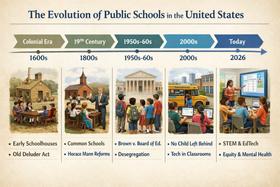Quick Facts (2026)
- School Type: Vocational school
- Grades: 8-12
- Source: National Center for Education Statistics (NCES), KY Dept. of Education
School Overview
School Type
Grades Offered
Grades 8-12
(Supplemental Virtual)
(Supplemental Virtual)
Total Students (20-21)
1 student
Total Classroom Teachers
n/a
School Rankings
Student-Teacher Ratio
n/a
15:1
American Indian
(20-21)n/a
n/a
Asian
(20-21)n/a
2%
Hispanic
(20-21)n/a
8%
Black
(20-21)n/a
11%
White
(20-21)100%
75%
Hawaiian
(20-21)n/a
n/a
Two or more races
(20-21)n/a
4%
School Statewide Testing
School District Name
Source: National Center for Education Statistics (NCES), KY Dept. of Education
Frequently Asked Questions
How many students attend Corbin Area Technology Center?
1 students attend Corbin Area Technology Center.
What is the racial composition of the student body?
100% of Corbin Area Technology Center students are White.
What grades does Corbin Area Technology Center offer ?
Corbin Area Technology Center offers enrollment in grades 8-12 (Supplemental Virtual).
What school district is Corbin Area Technology Center part of?
Corbin Area Technology Center is part of Kentucky Technology System School District.
School Reviews
Review Corbin Area Technology Center. Reviews should be a few sentences in length. Please include any comments on:
- Quality of academic programs, teachers, and facilities
- Availability of music, art, sports and other extracurricular activities
Recent Articles

Do We Still Need Libraries in Public Schools in 2026
An updated look at the role of public school libraries in 2026, their impact on literacy, equity, and digital learning, and why they remain essential today.

The History of Public Schools in the United States
Explore the history of public schools in the U.S., from colonial roots to 2026 reforms shaping equity, funding, and classroom innovation.

Special-Program Registration Deadlines Explained
Learn what to know about special-program registration deadlines for magnet, CTE, and dual-enrollment options in public schools.





